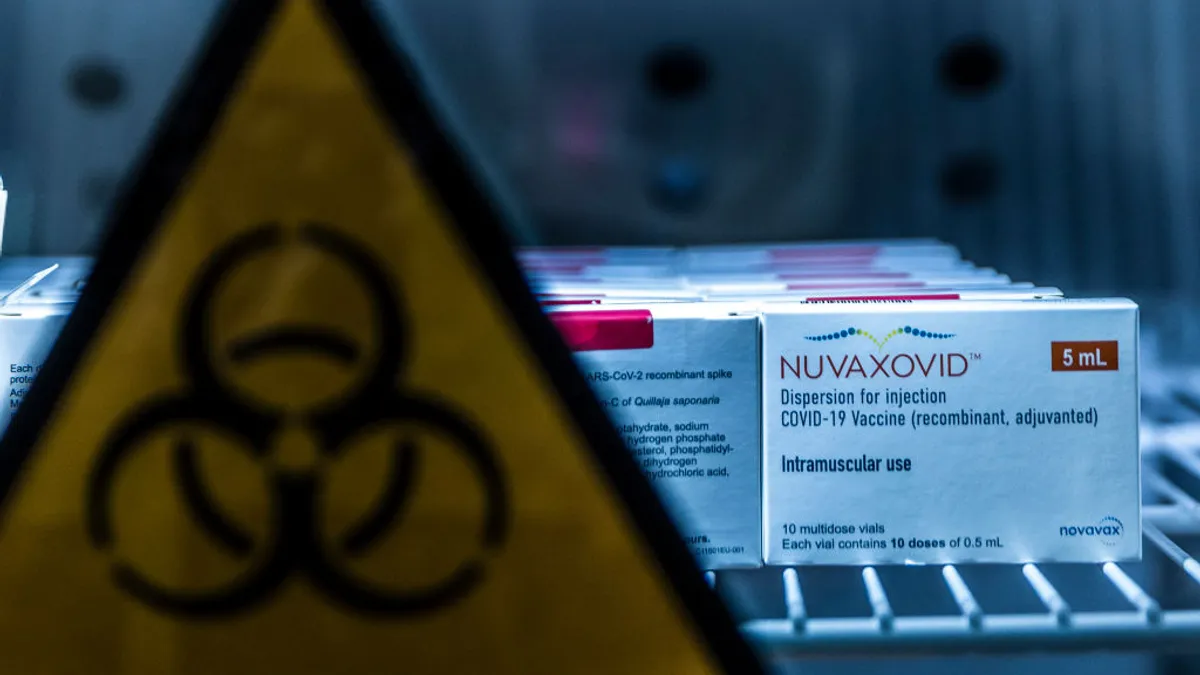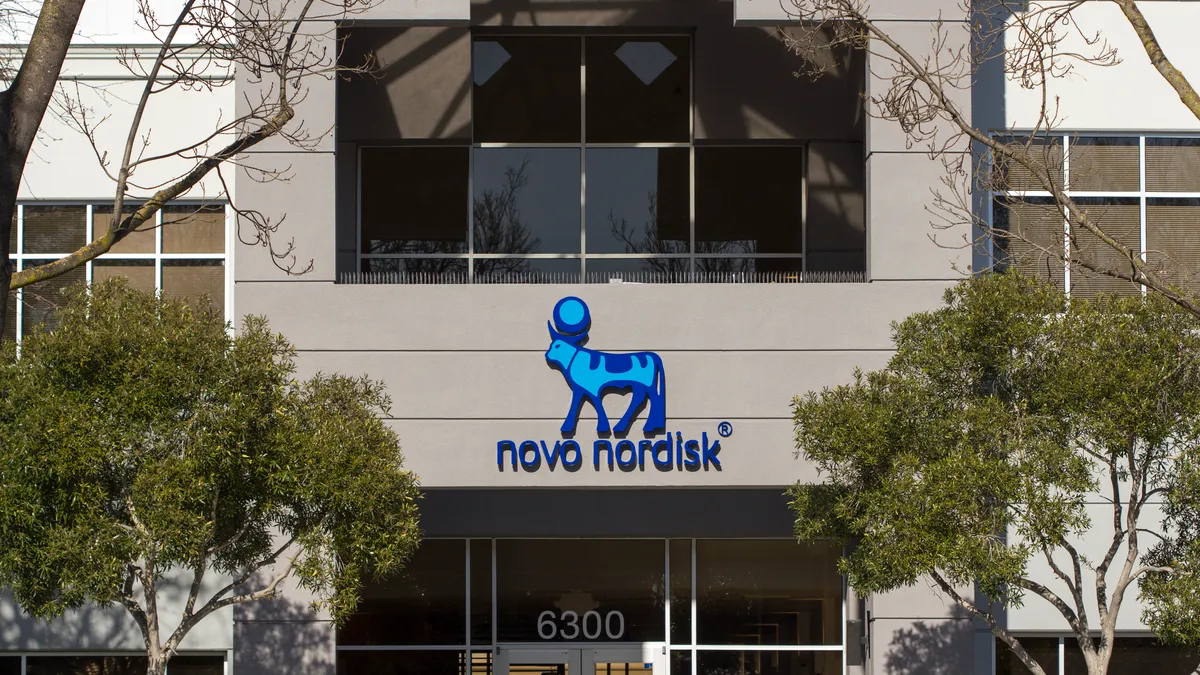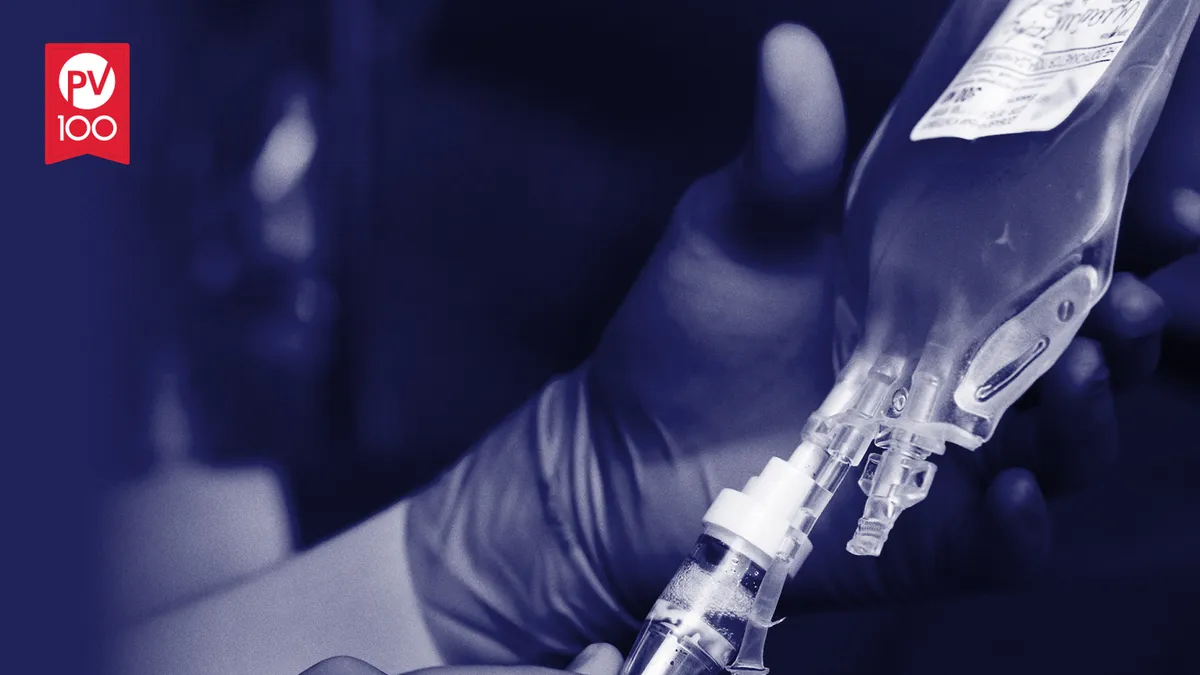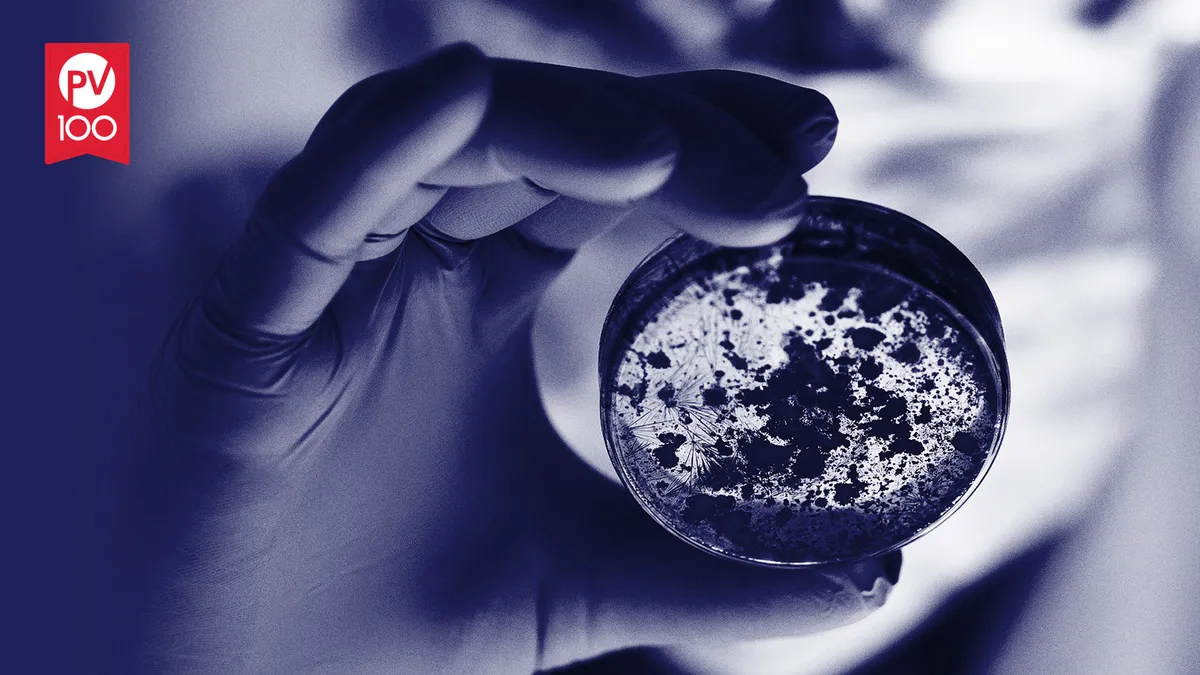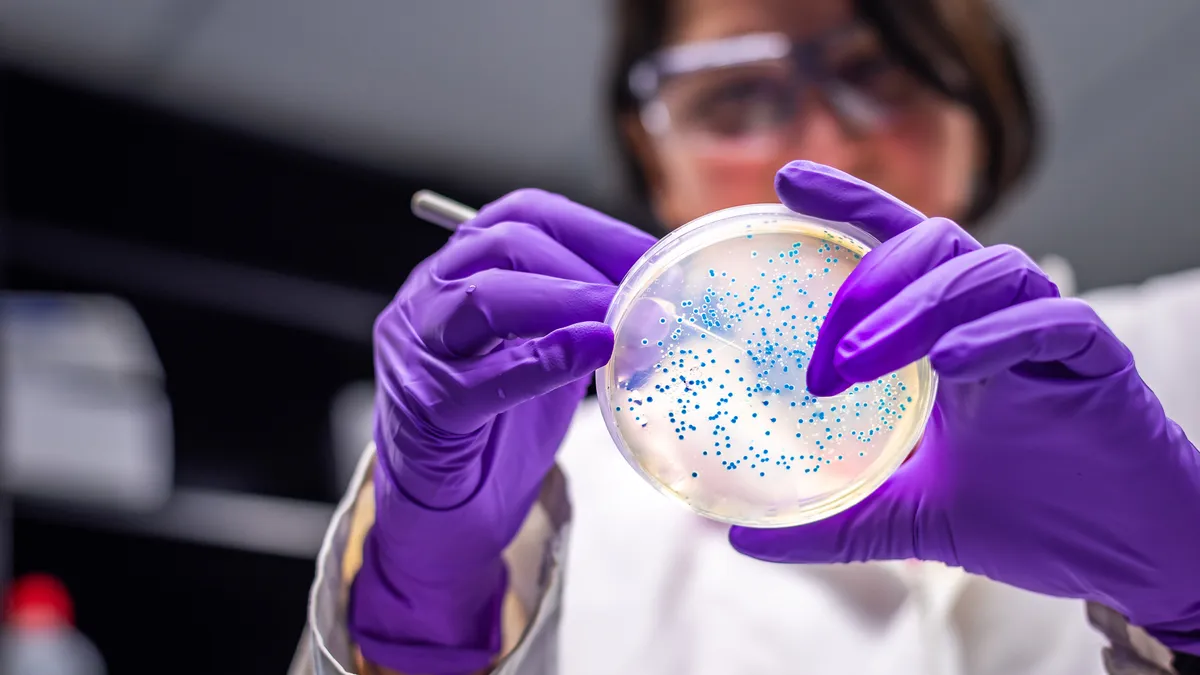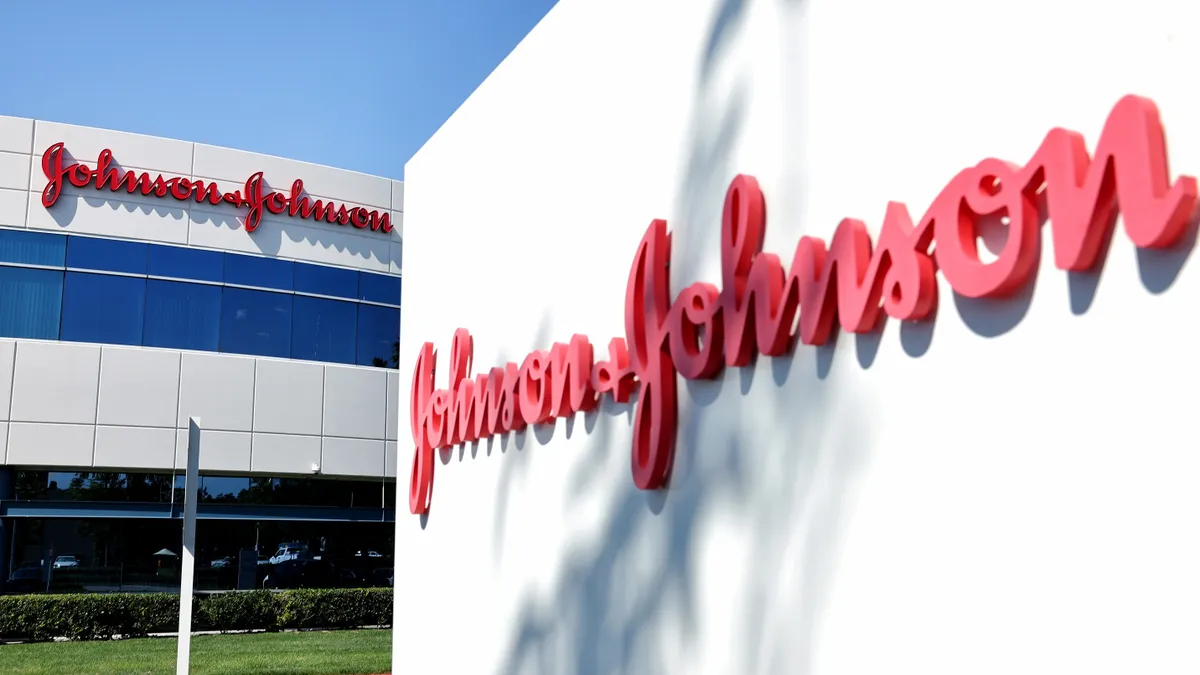After bursting out of the gate early in the COVID-19 vaccine push, Novavax quickly fell behind the pack. Manufacturing challenges and other delays slowed clinical progress, and Novavax didn’t score an FDA emergency use authorization until July 2022, more than a year and a half after its mRNA rivals.
Based on traditional protein technology, the Novavax jab offers an alternative for people nervous about mRNA technology and an easier shot to distribute in hard-to-reach places in the world. Studies have also suggested it has fewer side effects and slightly longer durability than its counterparts. But the company has struggled with uptake and expects full-year revenues of $800 million to $1 billion for 2023 — a touch below analyst expectations of about $1.06 billion. Its shares also plummeted more than 50% last year and are down more than 99% from pandemic highs.
Still, the company is staying the course, betting on the future prospects of its proprietary Matrix-M platform, which uses an adjuvant derived from Chilean soapbark trees, while studying a combo COVID/flu shot it hopes could land on the market in 2026.
Not everyone is convinced the company is on the right long-term path.
Shah Capital, which now owns 7.5% of Novavax’s common stock, published a letter last month calling for a leadership “shakeup” at the company. The investor pointed to “colossal market failures, a non-existent partnership strategy, no clear understanding of technology, questionable regulatory management and ongoing operating losses and inefficiencies” as key “value destroyers” at Novavax. Ultimately, Shah pitched two industry veterans as candidates for the company’s board.
It's not the first time Shah raised noise about the company’s performance.
“The science is great. It works. [But] maybe someone like Sanofi or Pfizer should just buy this company.”

Himanshu Shah
Founder, president, CIO, Shah Capital
“We wrote our first letter in 2023 because they were spending money like drunken sailors,” Himanshu Shah, Shah’s founder, president and chief investment officer, said in an interview. “So we asked them to be more efficient with how they’re spending their money.”
Although the circulating strains of COVID have stabilized and the virus is now behaving more like the flu, Novavax hasn’t capitalized on the push for yearly boosters, Shah said. In particular, Novavax failed to adequately market its vaccine or widely penetrate retail pharmacies, where more than 95% of Americans received seasonal shots last year.
“The company has really mucked up the marketing,” Shah said. “People don’t even know they exist.”
The long-term play
In early 2023, Novavax CEO John Jacobs described the “uncertainty” surrounding the company’s future on an earnings call, triggering concerns it could face bankruptcy. To stay afloat, the company executed a cost-cutting strategy, slashing 30% of its workforce and $500 million from R&D and other operating expenses in 2023 compared to the year before.
“They’ve done a phenomenal job getting through the woods,” Mayank Mamtani, managing director and group head of healthcare at B. Riley Securities, said. “They are doing everything you’d expect a company to do when the market comes for you, like COVID did, and then dissipates quickly.”
Although Shah’s recent letter “add[ed] to the pressure” Novavax was already under, Mamtani said at the highest level, it didn’t raise new complaints. But Mamtani called Shah’s concerns “reasonable” and noted it’s a reminder Novavax needs to move “faster” to reassure investors and employees its long-term strategy is built from “common sense.”
“Novavax is going back to its roots — focusing on its platform and developing a COVID/flu combo, which I think will be interesting and hopefully on time,” Mamtani said.
"Novavax is here to stay, but it’s going to be a painful journey to raise capital again and again."

Mayank Mamtani
Managing director, group head of healthcare, B. Riley Securities
The company’s only other candidate, a malaria vaccine developed by University of Oxford and Serum Institute of India leveraging Novavax’s Matrix-M platform, posted positive phase 3 results earlier this year and has been recommended for a 2024 rollout by the WHO.
Otherwise, the company has no other publicly known R&D programs, which irks Shah. Ultimately, he believes Novavax should expand its R&D capabilities into an array of infectious diseases.
But Mamtani cautioned that vaccine development is a “multi-year effort” and that even if Novavax pursues an ideal target like RSV, it could face challenges.
“RSV is logical, but it’s also a competitive space now. So they have to pick their battles with trials and clinical development,” Mamtani said.
A takeover target?
In an emailed statement, Novavax said the company is confident that advancing protein-based vaccines with its platform will be the right move to “drive long-term sustainable growth.”
While Shah said he’s optimistic about the promise of Novavax’s platform and estimated it’s “worth serious money,” he also believes the technology would be “in better hands” with a more established vaccine player.
“The science is great. It works,” Shah said. “[But] maybe someone like Sanofi or Pfizer should just buy this company.”
With interest in COVID-related vaccine development dwindling, Mamtani said Novavax likely won’t be an attractive takeover target. Instead, a new partnership could give the company a needed boost.
“I feel like Novavax is here to stay, but it’s going to be a painful journey to raise capital again and again,” he said. “It would be nice to have a partner to take some of the costs.”
In its last earnings call, Novavax guided toward flat revenue this year compared to 2023. In addition to its ongoing push to drive down costs, the company also plans to switch from offering its COVID vaccine in a five-dose vial to a prefilled syringe. Its first 2024 earnings report is expected within a few weeks.
Despite its struggles, Mamtani maintained that Novavax still has the opportunity to capitalize on COVID vaccine sales, even if that means just 10% of the market.
“There is a business here that should be profitable,” he said. “Long term, this is absolutely an important company with the platform they have and the products they’re developing. You need more than mRNA … so they should be able to drive significant market share.”



